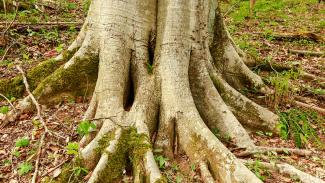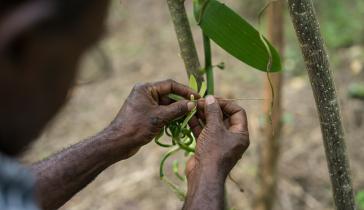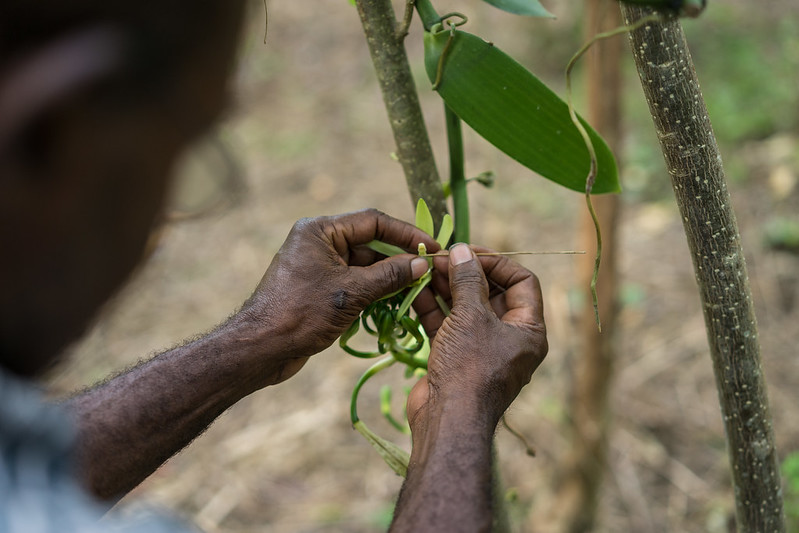Admittedly, it feels good to believe that something as simple as planting trees will solve the climate crisis. It’s why companies promise to plant a tree for every purchase or tout carbon neutrality by protecting faraway forests. But the truth is that trees alone can’t solve our climate issues.
Not that there is something wrong with planting trees, however, the damage we’ve done is too great a burden for brushes to bear as authors Jonathan T. Overpeck and David D. Breshears point out in their op-ed for Science Magazine, “The growing challenge of vegetation change.”
Trees are an effective way to trap carbon from the atmosphere, however the logic of only planting trees as a solution suffers from a few flaws: 1) Due to the warming planet, fewer plants are surviving; dying either of overheating or drought 2) The increased heat also makes these plants more vulnerable to thriving pest populations and 3) When the tree burns in the inevitable forest fire, all that carbon is released back into the atmosphere.
Overpeck stressed to Fast Company that we need other strategies. That’s where biotechnology comes in.
Starting with—well trees.
As Overpeck and Breshears pointed out, trees as they are today, have to be planted very strategically to ensure survival against the elements and critters. However, with gene editing, researchers are making small changes to plants’ DNA. These plants would still grow in rapidly changing environments and endure their current conditions much better.
The American chestnut is a great example of a nearly extinct tree due to disease but is making a comeback thanks to biotechnology. Once the government approves the planting of gene-edited American chestnut trees these trees will persist against disease, continue to help draw carbon from the atmosphere, and increase overall biodiversity.
And similar technology is being applied across vegetation at large to help farmers grow food more sustainably. Whether it’s helping crops to grow deeper roots that capture more carbon and protect the soil or modified foods that yield more food with fewer inputs, biotech is developing solutions that address our planet’s deepest problems.
As the largest greenhouse gas emitter, the transportation industry is an obvious next choice to tackle as we make better decisions in the fight against climate change.
In a STAT news piece, BIO’s CEO Michelle McMurry-Heath highlights BIO member companies that are doing work to directly battle climate change. For example, “Companies like Neste, Gevo, and World Energy are using everything from algae to used or wasted cooking oil to create sustainable jet fuels. LanzaTech recycles carbon from industrial emissions and other sources and turns it into aviation fuel — and has recently partnered with other corporations to bring that fuel to market for commercial airline use,” she writes.
As Dr. Michelle writes about the true way to reach ambitious climate goals, we’re going to have to “science our way out of it.”
That’s not to say don’t plant trees do. But do your research. Is it the right one for the environment it will grow in? How are you giving that plant the best chance of survival? What else will you be doing in your everyday life to help the planet?
For more ways, the biotech industry is addressing climate change, read the 2021 Biotech Solutions for Climate Report.







.jpg?itok=5epg0qxZ)


.jpg)











.png)


